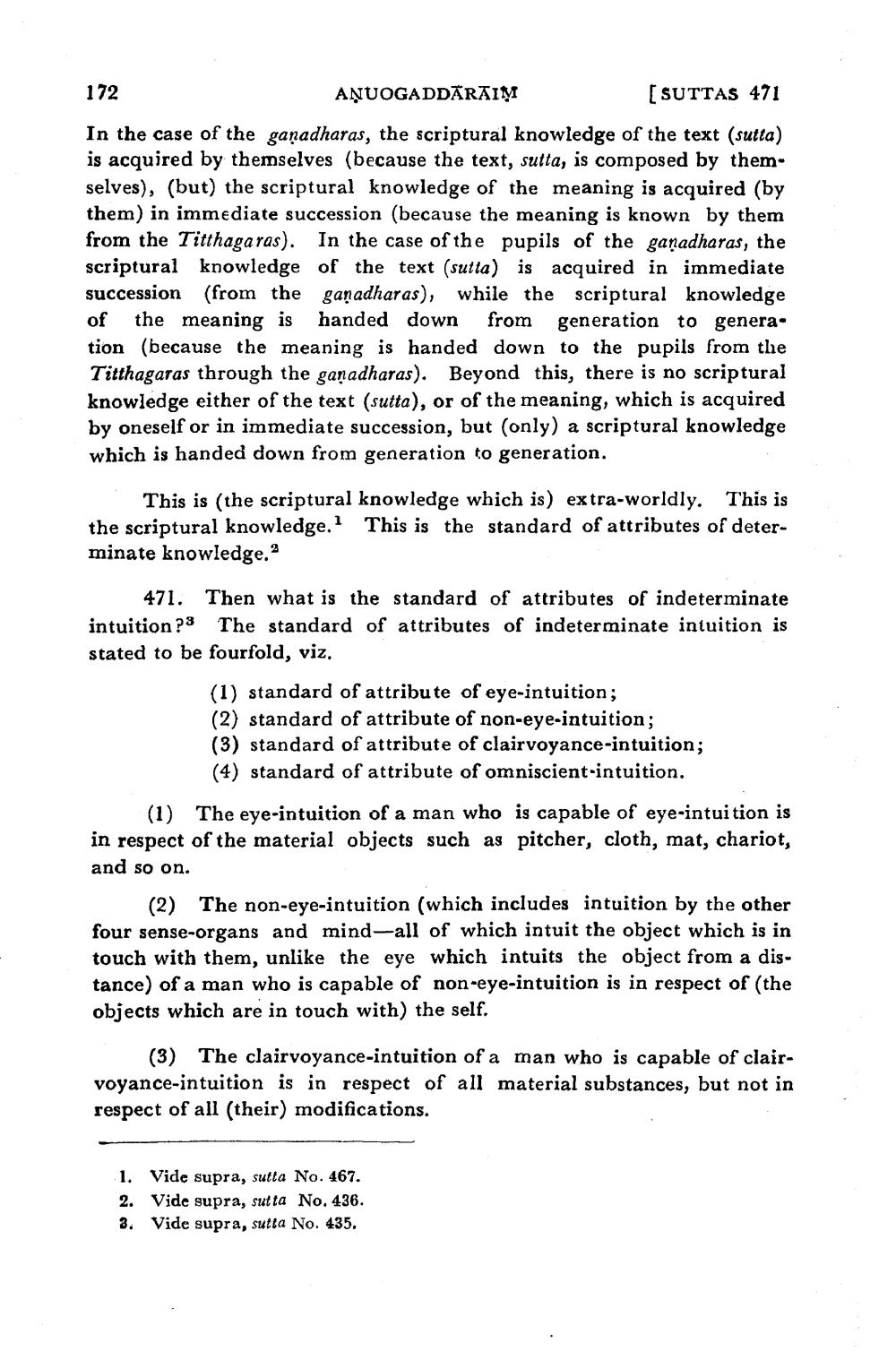________________
172
AŅUOGADDĀRĀIM
[SUTTAS 471
In the case of the ganadharas, the scriptural knowledge of the text (sutta) is acquired by themselves (because the text, sutta, is composed by themselves), (but) the scriptural knowledge of the meaning is acquired (by them) in immediate succession (because the meaning is known by them from the Titthagaras). In the case of the pupils of the ganadharas, the scriptural knowledge of the text (sutta) is acquired in immediate succession (from the ganadharas), while the scriptural knowledge of the meaning is handed down from generation to generation (because the meaning is handed down to the pupils from the Titthagaras through the ganadharas). Beyond this, there is no scriptural knowledge either of the text (sutta), or of the meaning, which is acquired by oneself or in immediate succession, but (only) a scriptural knowledge which is handed down from generation to generation.
This is (the scriptural knowledge which is) extra-worldly. This is the scriptural knowledge. This is the standard of attributes of determinate knowledge."
471. Then what is the standard of attributes of indeterminate intuition? The standard of attributes of indeterminate intuition is stated to be fourfold, viz.
(1) standard of attribute of eye-intuition; (2) standard of attribute of non-eye-intuition; (3) standard of attribute of clairvoyance-intuition;
(4) standard of attribute of omniscient-intuition.
(1) The eye-intuition of a man who is capable of eye-intuition is in respect of the material objects such as pitcher, cloth, mat, chariot, and so on.
(2) The non-eye-intuition (which includes intuition by the other four sense-organs and mind-all of which intuit the object which is in touch with them, unlike the eye which intuits the object from a distance) of a man who is capable of non-eye-intuition is in respect of (the objects which are in touch with) the self.
(3) The clairvoyance-intuition of a man who is capable of clairvoyance-intuition is in respect of all material substances, but not in respect of all (their) modifications.
1. Vide supra, sutta No. 467.
2. Vide supra, sutta No. 436.
3.
Vide supra, sutta No. 435.




